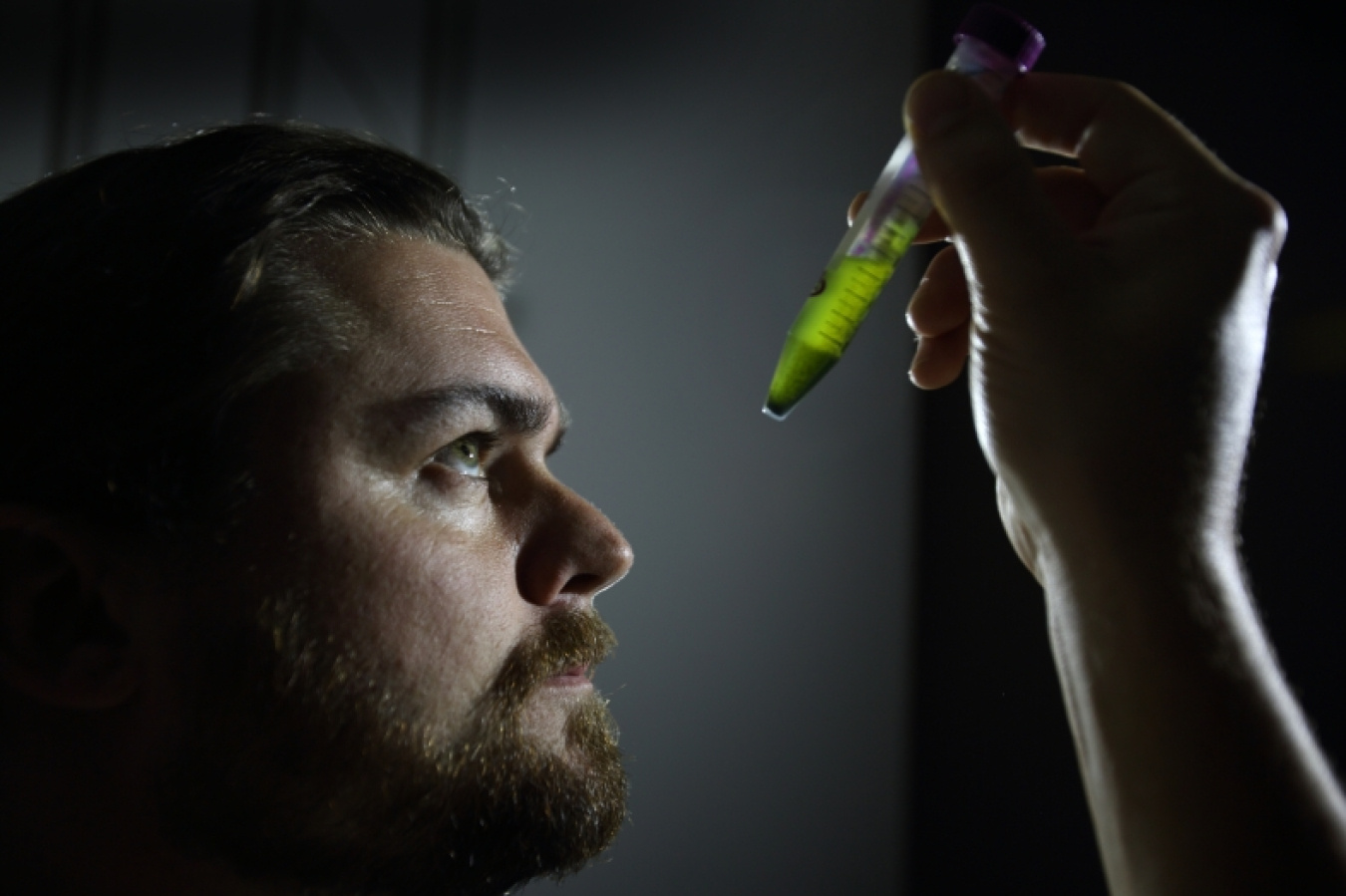
Ryan Davis and Sandia National Laboratories colleagues have developed a method to recycle critical and costly algae cultivation nutrients phosphate and nitrogen. Photo by Dino Vournas.
Algae are a promising source of renewable biofuels and bioproducts, and researchers at Sandia National Laboratories in Livermore, California, are taking a step toward realizing the promise of sustainable, cost-effective algal biofuels for the American public.
Sandia molecular biologists Todd Lane and Ryan Davis, leading a team with OpenAlgae and Texas A&M AgriLife Research, came up with a two-step process to recycle between 60% to 80% of the critical nitrogen and phosphate nutrients needed to grow algae, reducing the cost of producing biofuel from algae and benefiting the environment. Adding nitrogen and phosphate nutrients is one of the biggest costs in cultivating algae for biofuels, and phosphates are toxic at high concentrations as well as a limited natural resource.
After receiving Bioenergy Technologies Office funding in 2012 to develop sustainable algae production technologies, the team set out to demonstrate their cost-effective process to recycle nutrients back into algae growth systems. Their goal was to address both cost-effective algal production and environmentally sustainable design by reducing the demand for energy-intensive nitrogen and non-renewable phosphate nutrients.
“By recycling phosphates from one batch of algae to the next, we save money, no longer compete with agriculture for a non-renewable resource and keep those phosphates out of the environment,” said Lane. Read more from the Sandia news release.
Looking ahead, the team hopes to increase their recycling rate to close to 100% and fully integrate their oil harvesting and nutrient extraction steps into a one-pot process. They are also looking to expand their process of nutrient recycling to agricultural runoff, preventing nutrient-rich agricultural water from ending up in watersheds.
This project is just one of many that Bioenergy Technologies Office has funded that is helping to bring sustainable and cost-competitive algal biofuels and bioproducts to market.
The Office of Energy Efficiency and Renewable Energy (EERE) success stories highlight the positive impact of its work with businesses, industry partners, universities, research labs, and other entities.
